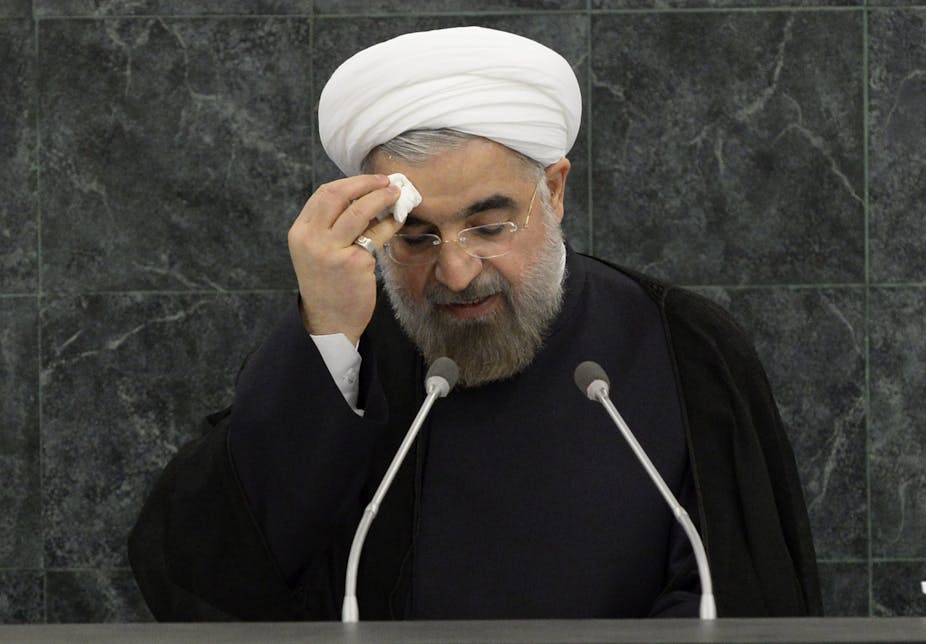As the deadline for an agreement on Iran’s nuclear program draws near, opposition to any such deal is gathering momentum. Republicans in the US Congress have already made it abundantly clear that they do not support a deal.
The open letter to the Supreme Leader of Iran from 47 members of Congress dubiously threatened that any agreement signed by US President Barack Obama could be revoked or modified by a subsequent administration. This has done much damage to the prospects of a negotiated deal.
It remains to be seen if that damage is terminal. But the letter received its desired response in Tehran.
Supreme Leader Ali Khamenei called this another example of the treachery and untrustworthiness of the United States. Reminding his audience of the history of animosity with the United States, Khamenei said the United States was well-known for “deceit and backstabbing”.
Khamenei’s support isn’t guaranteed
This harsh assessment may have been the expected response, but it does highlight a shift in the political thinking of the Supreme Leader as negotiations resumed this week in Lausanne, Switzerland. In July 2014, Khamenei rose to defend the government of President Hassan Rouhani and his efforts to pursue nuclear talks. Khamenei said categorically that:
Everyone should know, I support the government and will do everything in my power to help this government; I have full confidence in its respectable officials.
This ringing endorsement was aimed at criticism by hardliners and members of the parliament in Iran. They had accused Rouhani and Foreign Minister Mohammad Javad Zarif, who is leading the Iranian delegation to the negotiations, of being weak in the face of American bullying. This support was essential for Iran’s continued engagement with the P5+1 talks on its nuclear program, something that President Rouhani was fully aware of.
Suggestions that Iran will have to shut down some of its centrifuge facilities in order to secure a deal and ultimately achieve the removal of sanctions have emboldened the critics. For the hardliners, any concession that would limit Iran’s nuclear capacity is an affront to its national pride. The nuclear program is the manifestation of Iran’s resistance and independence, they argue.
Rouhani has been equally firm against his opponents. In a public speech on the anniversary of the 1979 revolution, he turned the table on his critics and said:
Only our enemies would oppose sitting at the negotiating table … no betrayal is worse than treachery behind the front line.
Clearly upping the ante, Rouhani argued that the number of centrifuge facilities is not integral to the identity of the state. Reducing centrifuge facilities, he said, does not equate with compromising on the fundamental principles of the Islamic Republic of Iran.
Rouhani is running out of time
Faced with mounting pressure from a hostile parliament, Rouhani publicly wondered if Iran’s continued participation in nuclear talks should be presented to the public in a referendum. He noted that the matter is too important to become a subject of politicking. That raised the ire of his critics, who accused him of suggesting that the parliament did not speak for the people.
Rouhani is well aware that time is his enemy. With every delay, his critics grow bolder, making it more difficult for the Supreme Leader to continue his blessing of the talks.
With that support slipping away, the urgent question is whether Rouhani will receive the approval of the Supreme Leader if and when there is an agreement at nuclear talks.

